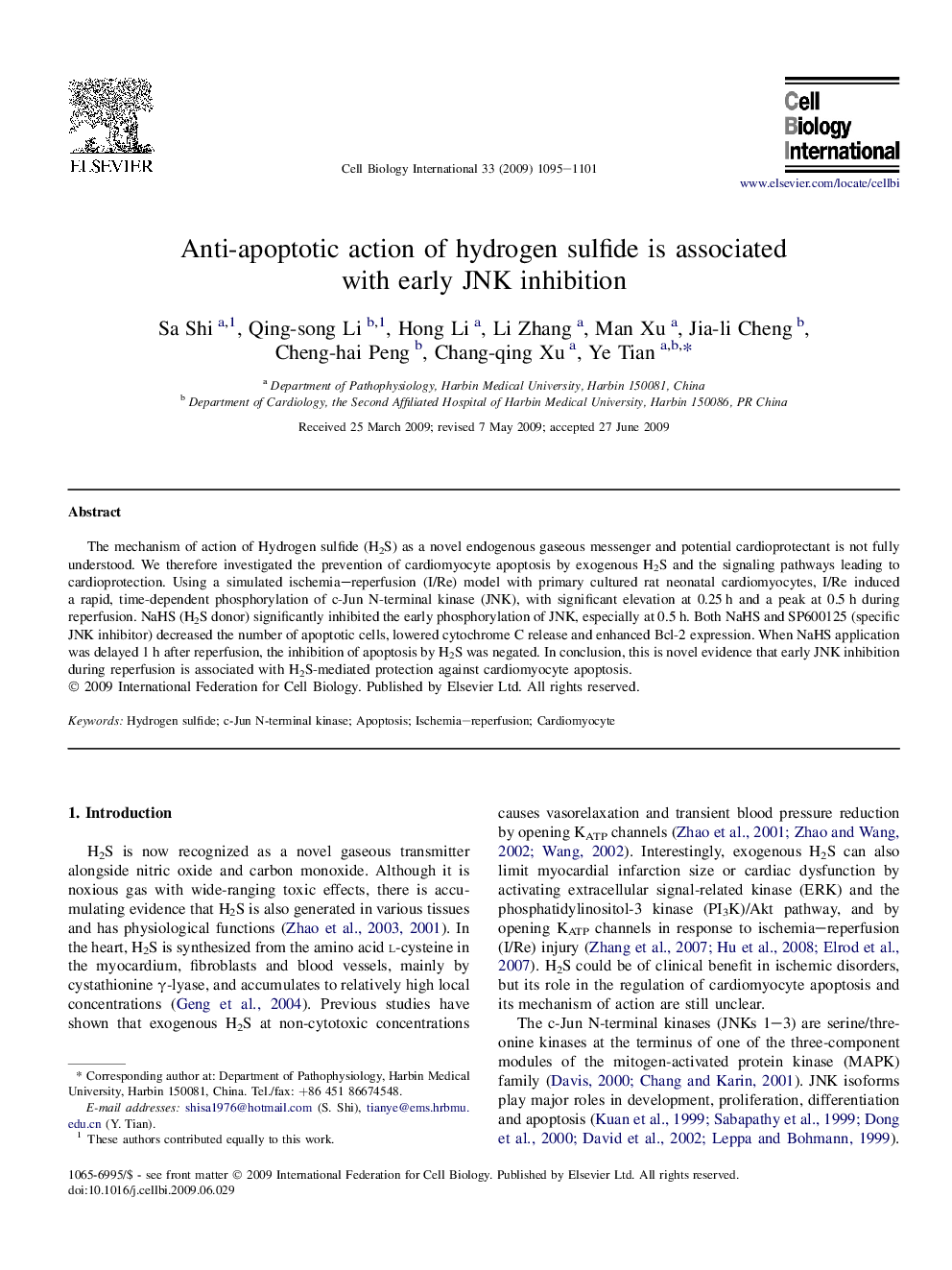| Article ID | Journal | Published Year | Pages | File Type |
|---|---|---|---|---|
| 2067061 | Cell Biology International | 2009 | 7 Pages |
Abstract
The mechanism of action of Hydrogen sulfide (H2S) as a novel endogenous gaseous messenger and potential cardioprotectant is not fully understood. We therefore investigated the prevention of cardiomyocyte apoptosis by exogenous H2S and the signaling pathways leading to cardioprotection. Using a simulated ischemia-reperfusion (I/Re) model with primary cultured rat neonatal cardiomyocytes, I/Re induced a rapid, time-dependent phosphorylation of c-Jun N-terminal kinase (JNK), with significant elevation at 0.25Â h and a peak at 0.5Â h during reperfusion. NaHS (H2S donor) significantly inhibited the early phosphorylation of JNK, especially at 0.5Â h. Both NaHS and SP600125 (specific JNK inhibitor) decreased the number of apoptotic cells, lowered cytochrome C release and enhanced Bcl-2 expression. When NaHS application was delayed 1Â h after reperfusion, the inhibition of apoptosis by H2S was negated. In conclusion, this is novel evidence that early JNK inhibition during reperfusion is associated with H2S-mediated protection against cardiomyocyte apoptosis.
Related Topics
Life Sciences
Biochemistry, Genetics and Molecular Biology
Biophysics
Authors
Sa Shi, Qing-song Li, Hong Li, Li Zhang, Man Xu, Jia-li Cheng, Cheng-hai Peng, Chang-qing Xu, Ye Tian,
